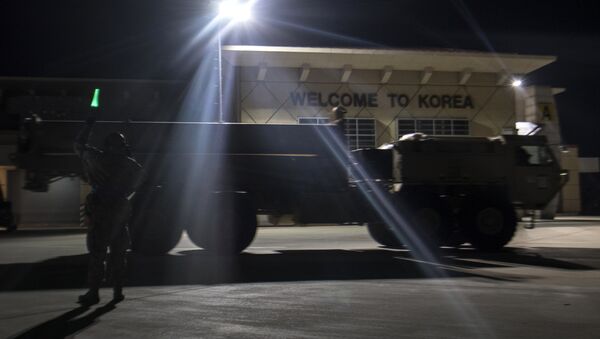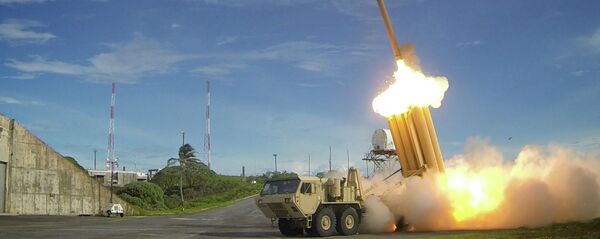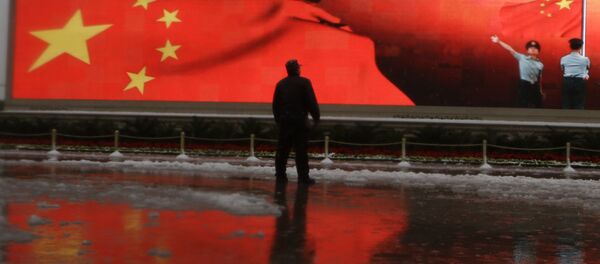WASHINGTON (Sputnik) — On April 26, South Korean media reported that THAAD deployment was underway at a site in the Seongju County despite massive protests of local residents.
"I want to reiterate China’s firm opposition against the US deployment of THAAD anti-missile system in ROK," Wang stated. "It is a move that seriously undermines the strategic security of China and other countries in the region and damages the trust and the cooperation amongst the parties on the Peninsula issue."
Wang urged both the United States and South Korea to immediately halt the deployment process.
The THAAD system has a range of some 200 kilometers (125 miles) and is designed to intercept short, medium and intermediate ballistic missiles at the terminal incoming stage.
China and Russia have repeatedly showed their objection to the deployment of THAAD, arguing that their real aim was to deter the strategic weapon systems not only in the Korean peninsula’s North, but primarily in China's hinterlands and Russia's Far East regions.
Wang Yi said that Beijing is not the key to resolving tensions on the Korean Peninsula.
"The key of solving the nuclear issue on the peninsula does not lie in the hand of the Chinese side," Wang stated.
The foreign minister has urged the resumption of talks on North Korea which he said should ultimately return to the six-party format.
Tensions surrounding North Korea's activities with both nuclear and ballistic missiles have escalated in recent months after Pyongyang conducted a number of nuclear tests and ballistic missile launches in violation of UN Security Council resolutions.
The most recent missile launch by Pyongyang reportedly took place early on April 16 but, according to South Korea's Joint Chiefs of Staff, it ultimately failed.
In response to the growing tensions in the region, the United States sent a naval group led by US aircraft carrier Carl Vinson to the Korean Peninsula. On April 14, US media reported that Trump might order a strike against North Korea if Pyongyang decided to carry out another nuclear weapons test.




